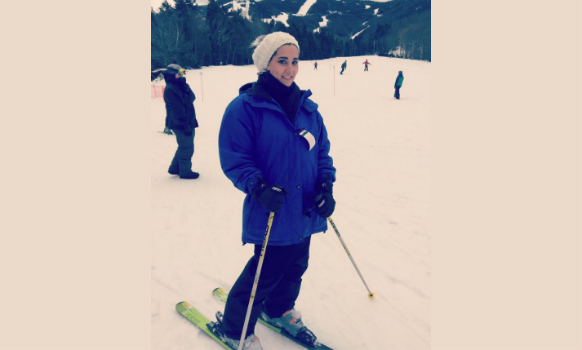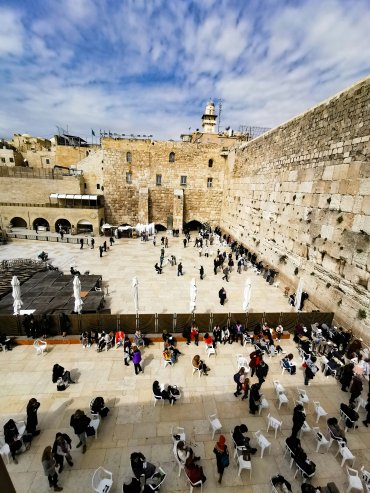Rosh Hashana is Not Actually The Beginning of the Jewish Year (and There’s a Beautiful Reason Why)
Though in some ways it feels like we’ve been together forever, it’s still new enough that I measure my marriage in days: fourteen. That’s seven loads of laundry, six chicken dinners, five times that we’ve gone into work, four bookcases built, three socks missing their partners, two pots horribly burnt and one Shabbat meal we managed to cook together. But who’s counting? While most people warned me that the first days of marriage are the toughest, and while we’ve definitely had our share of frustrations these two weeks, mostly marriage has been… really nice. As of yet, my husband has not once left the toilet seat up, has helped clear the table after meals, has washed dishes, has mopped the floor (twice!), and has told me many times a day that I am the most amazing, beautiful, intelligent woman he has ever met.
Life is good.
It’s not always going to be good, though. The new car smell of marriage is going to wear off at some point. I’m not so naïve as to think that things will continue like this forever. Even if we manage to string this initial stage out for a few more weeks or months or even years, eventually the bubble pops. He will leave the seat up one night and I will fall bottom first into the toilet, probably when I’m getting up at some dim hour to grab our teething baby.
What will we do then?
All beginnings are hard. But they’re also exciting. They’re new notebooks with nothing written on them on the first day of school. Fresh, clean, full of promise, and stuffed with adrenaline that thrusts us farther forward than we’d thought possible. Beginnings make us good people. Beginnings make us leave toilet seats down.
But eventually that newness wears off. We fall into ruts. Bad habits resume. The notebooks are too messy to write in, or lay forgotten at the bottoms of our lockers. The Netflix addiction we thought we’d kicked returns with six new shows to binge watch.
At which point we want to throw in the towel.
Luckily, the Jewish calendar has a solution: Rosh Hashanah.
Literally translated, Rosh Hashanah means the “Head of the Year.” Greeting cards simplify this and title the holiday “New Year.” The peculiar thing, though, is that Rosh Hashanah is not celebrated at the beginning of the year as one might expect from the name– it takes place in the middle.
“Speak to the Israelite people thus: In the seventh month, on the first day of the month, you shall observe complete rest, a sacred occasion commemorated with loud blasts.” (Leviticus 23:24)
According to the Torah, the day we celebrate as the beginning of the year actually falls out in the seventh month, halfway into the calendar. What is the advantage of putting the New Year in the middle of the year?
It provides us with a “do over.”
In the beginning we do great. But no perfect streak lasts. We’re going to start missing and our orderly systems we’ve set up are going to start breaking down. We’re going to want to clean our slates and try again.
We’re going to want a second chance.
Rosh Hashanah is our second chance. We’re halfway through the year and we now know what our weak points are. We have lists of what we’d want to do differently and people from whom we need to ask forgiveness. Had we started at the start we’d be too fresh off the boat to even know where to begin improving ourselves. Our resolutions mean more when they’re made in the middle. They are sober resolutions, stronger for the experiences of the last six months.
So I don’t have to worry about when the other shoe will drop in my marriage, or what little thing it is that my husband will do that will make me want to kick him to the couch. Rosh Hashanah gives me the permission and the model for switching tracks midpoint. I am not bound by any third act ruts I might fall into: regardless of age, stage or numbers of hours I slept the night before, I can hit the pause button, take a breath, and start again, from scratch if need be.
Because the beginning doesn’t have to be the beginning – the middle can be the beginning too.
If you found this content meaningful and want to help further our mission through our Keter, Makom, and Tikun branches, please consider becoming a Change Maker today.







